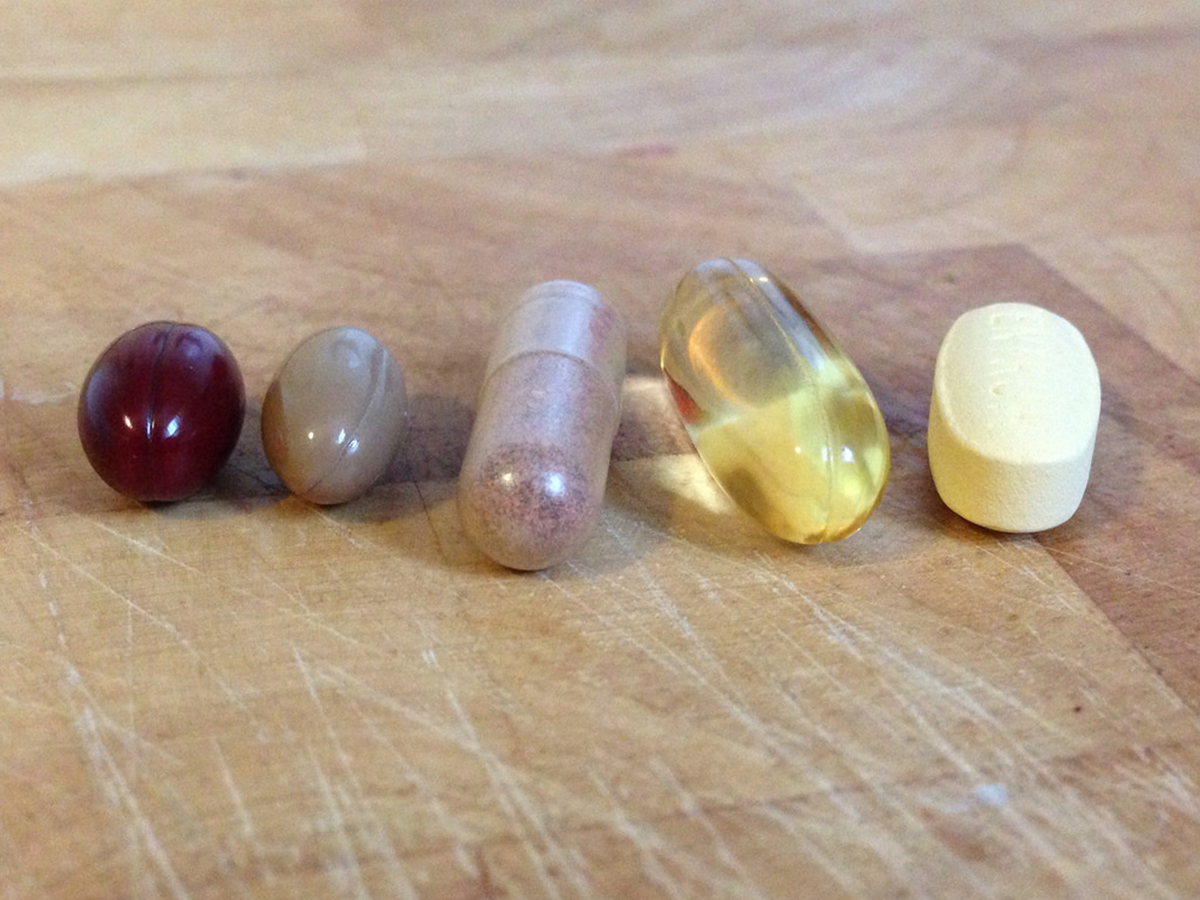The US Centers for Disease Prevention and Controlreports that there has been an increasing number of Americans who are taking dietary supplements in the last decade compared to those in the 90s.

More women who are older than 60 have also been taking calcium and vitamin D supplements. Other common types of dietary supplements include herbal products and other compounds taken to induce weight loss, improve sexual function and enhance body building. Consumers spend about $30 billion on health supplements every year but the latest studies show that they are no better than placebo in preventing disease. Aside from this, many side effects have been reported after chronic or inappropriate use of some supplements.
Current Studies on Dietary Supplements
In spite of some negative reports about the lack of benefit or possible dangers from dietary supplements, some studies have shown that a few of these do provide some health benefits when taken properly. Doctors often prescribe supplements such as calcium, vitamin D, folic acid, fish oil and probiotics to improve health and prevent disease. An independent research organization, Consumer Reports studied over 1,000 ingredients used in health supplements and identified 12 substances that may be hazardous to health and 11 other substances that may actually help improve or maintain health.
The 12 ingredients which are most likely to be associated with serious side effects and little health benefits are aconite, chaparral, bitter orange, colloidal silver, comfrey, coltsfoot, country mallow, greater celandine, germanium, lobelia, kava, and yohimbe. At least eight of these have been identified by FDA even in the 90s. Although the public has access to these information, most of these products continue to be sold over-the-counter, being marketed as safe and effective.
Do people really need to take dietary supplements to boost health? Three recent studies published in the journal Annals of Internal Medicine,have led health experts to believe that people may just be wasting money on supplements that do not prevent heart problems, improve memory or prolong life. They also have minimal effects on cancer risk.
Read More: The 6 Top Natural Supplements For Men
Many consumers and health providers, however, may not agree with these statements, as long as they believe they can rely on health supplements to make them feel good, boost their energy, lose weight, prevent certain conditions, or feel younger. With the current economy, it is also easier for people to pop a pill to ensure good nutrition than to go to the market, cook and count calories and nutrients. Buying these supplements over-the-counter is also cheaper and more convenient than getting treatments from a clinic for some people.
What To Watch Out For
Vitamin and mineral supplements are usually harmless when taken properly, but some other products may bring undesirable or even serious side effects. In general, experts warn the public to watch out for:

-
Supplements containing prescription drugs or ingredients similar to prescription drugs such as tadalafil (Cialis), sildenafil (Viagra), or sibutramine (Meridia). These are usually found in weight-loss supplements, body-building supplements and those that promise to enhance sexual performance. Supplements tainted with these drugs may cause stroke, liver injury, blood clots in your lung, kidney failure and even death.
-
Supplements that may interact with other drugs you are taking. For example, Ginkgo biloba may interfere with the action of blood thinners, which are used to prevent stroke and heart attack.
-
Supplements with multiple ingredients. Some combinations of herbs and other compounds may be hazardous to health. It is generally better to take supplements with a single active ingredient only. For example, if you need to increase your vitamin D levels, just take a vitamin D supplement as prescribed.
-
Supplements sold over the internet. Research shows that many drugs and dietary supplements sold by distributors over the internet are fake or tainted with other harmful substances. It is always best to buy your medicines and supplements from a local pharmacy with a licensed pharmacist who can assist you with any information you need.
-
Supplements with exaggerated claims or those that promise to cure certain diseases. These supplements may be tainted with ingredients that are similar to prescription drugs, which may cause serious side effects.
-
Supplements should never substitute for prescribed medication without medical advice. Replacing or altering prescribed treatments with supplements can lead to ineffective treatment, worsening conditions, and potential health risks. Always consult healthcare professionals before making any changes to your medication regimen.
-
Ignoring quality standards in supplements can lead to consuming products with impurities, incorrect dosages, or harmful ingredients. It's crucial to choose supplements from reputable sources that adhere to regulatory standards, ensuring safety, purity, and efficacy of the product.
-
Improper storage of supplements can degrade their potency and effectiveness. Exposure to heat, light, or moisture can alter their composition. It's essential to store them according to label instructions, typically in a cool, dry place, to maintain their intended efficacy.
Do You Need to Take Supplements?
Not every one needs to take health supplements but some doctors recommend them to their patients. These may include:
-
Women of child-bearing age, who are usually advised take 400 micrograms of folic acid daily.
-
Pregnant women, who are advised to take iron-containing prenatal vitamins.
-
Adults who are 50 years of age or older may take B-12 supplements in addition to foods rich in this nutrient
-
People who are not able to consume 1,600 calories per day
-
Vegans or vegetarians who eat a limited variety of food
-
Woman who experience heavy menstrual bleeding are advised to take supplemental iron
-
Patients whose body cannot normally absorb or use nutrients, such as those with chronic diarrhea, food intolerance, food allergies, liver disease, etc.
-
Patients who have recently undergone surgery and are not able to digest/absorb nutrients from their intestinal tract
Health advocates recommend eating whole foods as part of a health, balanced diet to obtain all the necessary nutrients they need to maintain well-being.
Read More: The 28 Top Natural Supplements For Women
If you are thinking about taking or are already taking dietary supplements, talk to your doctor about it to find out if you are taking the right supplement and the proper dose. Ask about drug interactions and possible side effects before taking anything. Do your own research but make sure to look for reliable information, which is usually not found in marketing websites or personal blogs.
- WebMD. Use of Dietary Supplements on the Rise. http://www.webmd.com/diet/news/20110413/use-of-dietary-supplements-on-the-rise
- Medline Plus. Experts: Don't Waste Your Money on Multivitamins. http://www.nlm.nih.gov/medlineplus/news/fullstory_143473.html
- Mayo Clinic. Supplements: Nutrition in a pill?http://www.mayoclinic.org/supplements/ART-20044894
- Consumer Reports. 10 surprising dangers of vitamins and supplements. http://www.consumerreports.org/cro/magazine/2012/09/10-surprising-dangers-of-vitamins-and-supplements/index.htm?EXTKEY=AYAHLTH02
- Consumer Reports. Dangerous supplements. http://consumerreports.org/cro/2012/05/dangerous-supplements/index.htm
- Cohen, P. The Hidden Dangers of Dietary Supplements. Dr. Oz Show. http://www.doctoroz.com/videos/hidden-dangers-dietary-supplement
- WebMD. Danger Lurking in Some Dietary Supplements?http://www.webmd.com/diet/news/20100803/danger-may-lurk-in-some-dietary-supplements
- Photo courtesy of Health Gauge by Flickr : www.flickr.com/photos/healthgauge/12116121703
- Photo courtesy of Health Gauge by Flickr : www.flickr.com/photos/healthgauge/11630703214/
- www.webmd.com
- www.mayoclinic.org
- www.doctoroz.com
- www.consumerreports.org
- www.nlm.nih.gov


Your thoughts on this